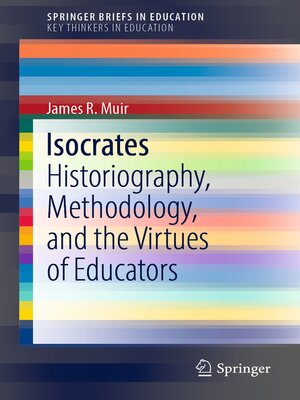Isocrates
ebook ∣ Historiography, Methodology, and the Virtues of Educators · SpringerBriefs in Education
By James R. Muir

Sign up to save your library
With an OverDrive account, you can save your favorite libraries for at-a-glance information about availability. Find out more about OverDrive accounts.
Find this title in Libby, the library reading app by OverDrive.



Search for a digital library with this title
Title found at these libraries:
| Library Name | Distance |
|---|---|
| Loading... |
Isocrates is one of the most remarkable and influential figures in the history of human thought. The influence of his ideas in the history of historical writing, rhetoric, the visual arts, music, religion and theology, political science, philosophy and, above all, educational philosophy and practice in Europe, Australia, North America, North Africa, and the Middle East are well established and widely known.
This book argues careful study of the educational philosophy of Isocrates and its legacy can contribute to an improved understanding of the historiography of educational thought, his distinctive normative methodology in both political and educational philosophy, and his arguments about the primary importance of the virtues of self-knowledge and realistic self-appraisal for educational philosophers and practitioners.
At a time when educational philosophy has an increasingly precarious academic existence and educationists are actively seeking new historiographical and methodological approaches to the philosophical study of education, there is much to be gained by recovering and reevaluating the historiography and normative methodology of Isocrates and the role they play in educational discourse and practice today.







